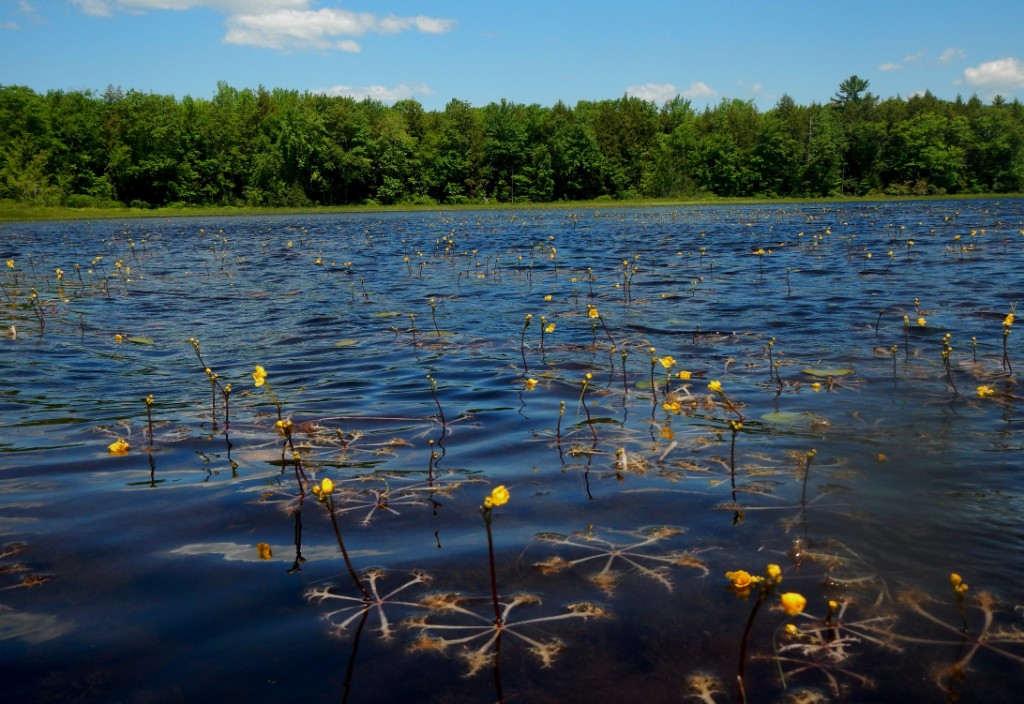The abundance of the invasive aquatic plant swollen bladderwort in Fayette’s Tilton Pond has increased dramatically since it was first discovered in August of 2023. It now compromises pond residents’ ability to enjoy the pond. Large mats have formed on the surface of the pond, causing boating and swimming to be unpleasant or impossible.
Because Tilton Pond is the first water body in the chain of one of the branches that forms the 30 Mile River, the infestation is especially concerning. Tilton lies upstream of many other lakes and ponds in the watershed including David, Parker, Taylor, Echo, Lovejoy, Pocasset and Androscoggin. 30 Mile’s top priority has been to reduce the chance of the plant moving downstream.
As soon as the plant was found, the Fayette Board of Selectmen took immediate action and closed the Tilton Pond boat launch to all but carry-in boats like canoes and kayaks, which are less likely to spread the plant to other water bodies. Like many other aquatic plants, this invasive commonly reproduces by fragmentation, so fragments carried downstream could establish a new population. This in turn threatens local ecosystem dynamics, recreation, and property values. 30 Mile staff have installed and maintained two nets across the stream to catch fragments, and have also completed one of two pond-wide surveys of David Pond planned for this year, working alongside pond association volunteers.
The Maine Department of Environmental Protection (MDEP) is fully aware of the situation and 30 Mile has been working closely with their biologists since discovery of the plant. 30 Mile staff surveyed Tilton with MDEP as soon as the invasive plant was found two years ago, and have been in contact regularly with Tilton residents, town officials and representatives of the Basin, David and Tilton Pond Association (BDTPA). 30 Mile obtained a permit from the State for removal activities, including volunteer removals. MDEP staff visited the pond in late June and are planning a meeting for the public later this month to discuss the options for controlling the plant and answer any questions.
Historically, Maine has little experience with this bladderwort species – it was put on the invasive species list only in 2023 – but MDEP is experimenting this year with diver-assisted suction harvesting in Mousam Lake and Little Ossipee Lake and is reviewing the progress of those efforts to see if they might be useful in Tilton Pond. It’s important to understand that there is no quick and easy fix when dealing with an infestation of a plant largely unknown to Maine that is so well-established. The development of solutions and best management practices takes time and 30 Mile, alongside MDEP and stakeholders, are working hard to maximize the process’ efficiency.

Swollen bladderwort flowering on Tilton Pond.
This article was included in 30 Mile’s July 2025 newsletter. To view the full newsletter, click here.
